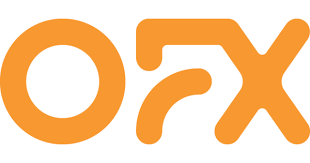| Provider | Amount Received | Fee | Exchange Rate | Speed | ||
|---|---|---|---|---|---|---|
 |
OFX (prev. CanadianForex) | USD $7,265.60 | No Fee | 0.7266 | 1-3 days | more... |
 |
TorFX | USD $7,272.93 | No Fee | 0.7273 | 1-3 days | more... |
 |
Currency Solutions | USD $7,254.61 | No Fee | 0.7255 | 1-3 days | more... |
Founder & CEO, FXCompared
Daniel is one of the world experts on the money transfer sector. He is widely quoted across the industry with over 20 years of experience in the international finance world focused on international payments, technology, and the property sectors. More about Daniel.
OFX provides secure and speedy international money transfers to over 300,000 people in 55 currencies at better-than-bank rates.
FXcompared may earn fees from this listing. Learn more
Excellent exchange rates | No transfer fees | Thousands of 5 star reviews
FXcompared may earn fees from this listing. Learn more
Currency exchange specialists ranking No.1 on Trustpilot for the past two years
FXcompared may earn fees from this listing. Learn more
Great exchange rates | Specialist services | No added fees, 24/7 transfers | Safe and secure
FXcompared may earn fees from this listing. Learn more
If you move to the US, it is likely that you will need to open a US bank account. US citizens or resident aliens may open bank accounts online in most cases. To do so, you must provide your US address, driving licence or other state-issued ID, and your Social Security Number (SSN). We recommend that you apply to the Social Security Administration as soon as possible for a SSN, which is required in order to be locally employed and collect Social Security benefits and other government services.
None of Canada’s main commercial banks, such as RBC and CIBC, have a major branch network in the US. The private banking arms of groups such as RBC are global, but it may be preferable to open an account with one of the major American banks. US banks, by contrast, have a larger presence in Canada.
As in Canada, US taxes are calculated on the calendar year. This will simplify the process of paying a partial year of taxes in either country. Nonetheless, we recommend seeking expert advice on how your move will affect tax payments, particularly if you plan to make a large purchase, such as a home, in the US.
For tax purposes, the US Internal Revenue Service (IRS) allows Canadians to stay in the US for only 182 days a year, while the limit set by the Homeland Security, Immigration and Naturalization Act is 180 days. Canadians who remain in the US for more than 180 days in any rolling 12-month period risk being deemed unlawfully present and face a three-year travel ban. Stay longer than 182 days and you could be taxed by the IRS on your worldwide income. However, this 182-day limit is more complicated than that. The IRS has a more complicated way of calculating residency called the “substantial presence” test, which adds the number of days you were in the US in the current year to one-third of the number of days you were there the previous year, and to one-sixth of your US days in the year before that. If this exceeds 183 days, then you could be considered a US resident for tax purposes.Canadian citizens only require a valid passport to enter the US and may visit the country for up to six months per year without a visa. Visas are required in certain cases for visits exceeding six months, including foreign citizen fiancé(e) (K-1 Visa), a US citizen’s foreign spouse awaiting completion of immigration processes (K-3 Visa), and spouses of lawful permanent residents (V-1 Visa). Approval is also required for non-immigrants travelling to the US for short-term work assignments, including employees of foreign governments (A Visa) and international organisations (G Visa). Requirements vary, and we recommend consulting current guidelines at your nearest US consulate.
If you plan to immigrate to the US for work, you will need to obtain a work visa. Canadians are eligible for several different types of visas depending on experience, citizenship status and professional projects. Professionals with certain skill sets may be eligible to obtain a three-year TN visa under the North American Free Trade Agreement (NAFTA). Canadian students do not require a visa to study in the US and need only obtain an I-20 Certificate of Eligibility from their university.
Canada is a large source of foreign students in the US, with 27,000 student visa holders registered in 2016-17. Together, all international students spent some US$34bn in tuition fees and living costs during 2016/17. Canadian citizens do not need visas to study in the US, but do need to be registered by an accredited institution with the US Student and Exchange Visitor Information System (SEVIS).
One-off payments | Regular payments | Great rates | Safeguarded customer funds
FXcompared may earn fees from this listing. Learn more
Great rates | One-off payments | Regular transfers | E-Money Institution | No fees for FXcompared customers
FXcompared may earn fees from this listing. Learn more
Average of the top Canadian Banks costs as compiled by our own FXC Intelligence group. For more details on how the bank price comparisons are calculated for Bank of Montreal, CIBC, Royal Bank of Canada, Scotia Bank Canada, Toronto Dominion Bank, see our IMTI page.
FXcompared is an independent, advertising-supported comparison service where we have commercial relationships with some of the providers listed. When you use us to sign up to a money transfer provider we have a commercial relationship with, we get either a flat fee or a commission from the provider you choose but this does not cost you anything extra and our site is free to use. The ability for companies to sign-up and retain customers may impact how and where these providers appear on this site, including, for example, the order in which they may appear within listing categories but you may reorder the listings. Other factors, such as our own proprietary website rules and the likelihood of a customer being on-boarded to a provider impact how and where products appear on this site. FXcompared does not include the entire universe of available international money transfer companies.
Exchange rates update frequently and the pricing shown in the comparison tables is indicative only and based on a first time transfer for a new customer signing up via FXcompared. The pricing does not reflect any special rates individual customers may be offered by a provider, either on sign up or rates for any repeat transfers and there may be other lower priced providers not listed on FXcompared. FXcompared is not an FX trading platform and should not be used to inform any FX trading decisions.
All reviews are prepared by FXcompared. Opinions expressed therein are solely those of the reviewer. The information presented in the review is accurate as of the date of the review. Check with the providers directly for the most current information.
We welcome all suggestions for improvements. Send us an email at support@fxcompared.com.
All the providers listed are regulated by the relevant authority (e.g. the FCA in the UK, FinCEN in the US, ASIC in Australia) and have been vetted by FXcompared.
FXcompared.com is an fx money comparison site for international money transfer and to compare rates from currency brokers for sending money abroad. The website and the information provided is for informational purposes only and does not constitute an offer, solicitation or advice on any financial service or transaction. None of the information presented is intended to form the basis for any investment decision, and no specific recommendations are intended. FXC Group Ltd and FX Compared Ltd does not provide any guarantees of any data from third parties listed on this website. FX compared Ltd expressly disclaims any and all responsibility for any direct or consequential loss or damage of any kind whatsoever arising directly or indirectly from (i) any error, omission or inaccuracy in any such information or (ii) any action resulting therefrom.




